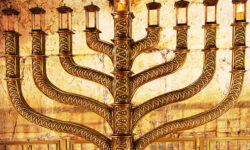Essays
Free Choice
The ultimate criterion of “free choice” is not “Is it determined?” but “What determines it?” Every choice is determined by something, be it a rational motive or an intuitive flash of no traceable origin. True choice is when one’s course of action is determined by, and only by, the very quintessence of self.
Read MoreDoes evil come from G-d?
Philosophers and theologians of all ages have asked: Does evil come from G-d? If G-d is the essence of good, can there be evil in His work?
Read MoreSpiritual Coldness vs. Spiritual Heat
Nothing positive and holy can ever spring forth from spiritual coldness. When a person is faced with icy indifference he must reassess his spiritual life.
Read MoreLost in Translation: Understanding G-d
When understanding G-d in personally relevant terms, we invite Him into the core of our lives, rather than relegating Him to the periphery of our existence. Lessons from the incident of the golden calf.
Read MoreHoly Sinners: Parshat Korach Dvar Torah
The road to Heaven is paved with good intentions: lessons learned from Korach’s rebellion against Moses in Parshat Korach Dvar Torah, Bamidbar.
Read MoreHoly Land: Using the Lessons of the Twelve Spies
In our own lives, we each have a “generation of the desert” and a “generation which enters the land.” Learn personal lessons from The Twelve Spies. Essay based on address by the Rebbe.
Read MoreLamps and Lives: The Holy Temple Menorah
Spiritual meaning of the Holy Temple Menorah, based on an essay from the Rebbe on Parshat Behalotcha (Numbers 8:1-4).
Read MoreG-d’s Relationship With The Kohen Gadol
A discussion based on Chassidus, Jewish mystical thought, on the basis that we refer to G-d as a kohen or a kohen gadol, as well as in other human terms.
Read MoreThe Meaning: You Shall Be Holy for I Am Holy
What does the commandment “You shall be holy for I am holy” mean? Our relationship with G-d is complex. We contribute as much and even more than we receive.
Read MoreThe Eruv: A Private World
The ultimate function of Shabbat is to establish an eruv in our “multi-occupant courtyard”: to integrate the diverse forces and realities of our world as a singular, harmonious expression of the divine truth.
Read More












